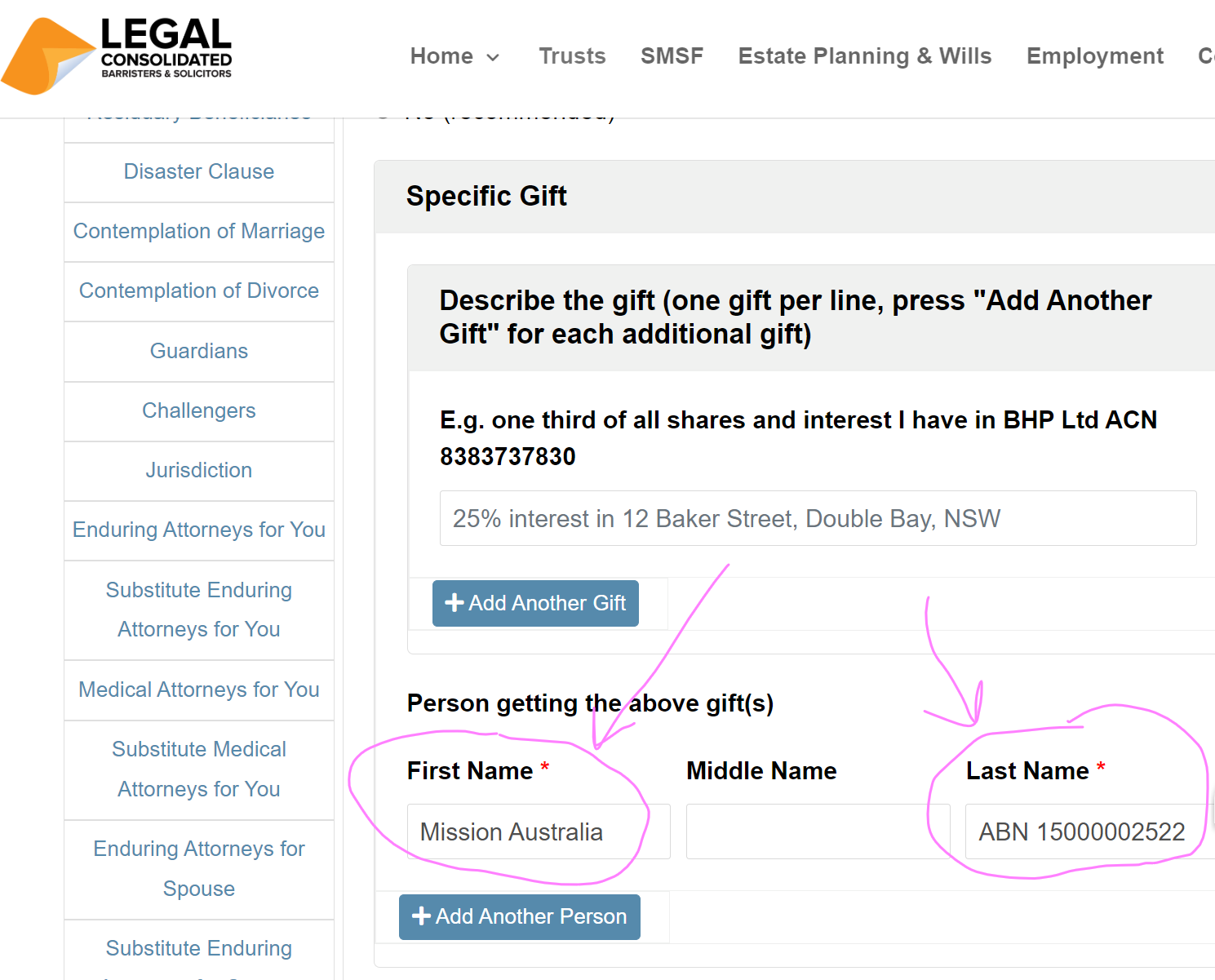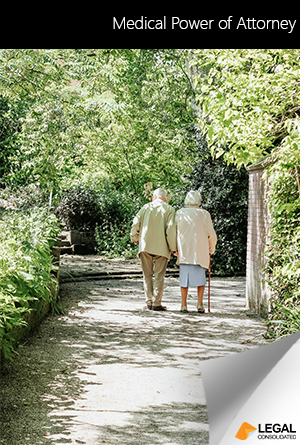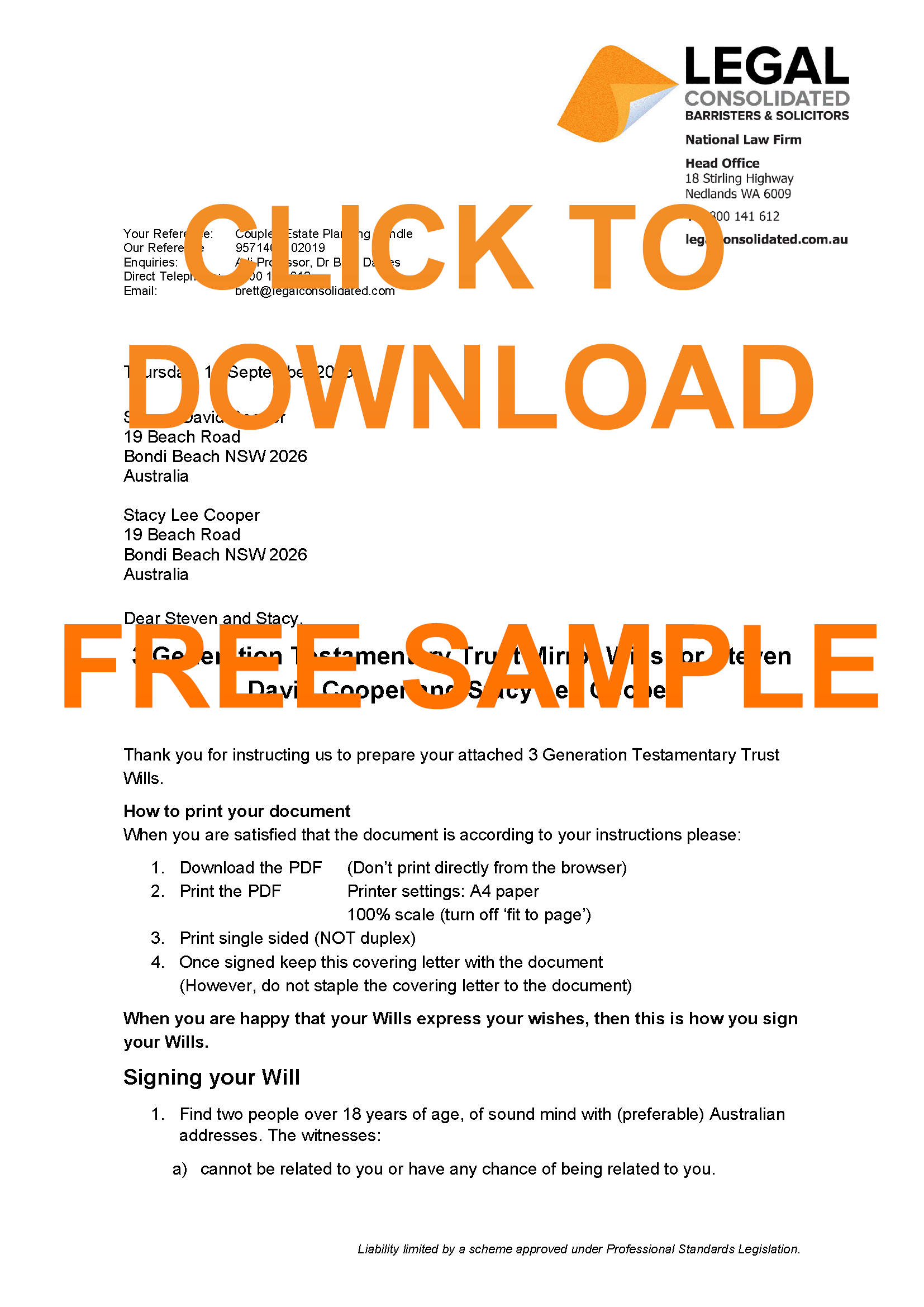Complete guide to the NSW Appointment of Enduring Guardian
Who looks after you, when you cannot? The NSW government? Retirement home? A doctor? Should they control your body? Or, do you trust your family more? If so make an NSW Appointment of Enduring Guardian.
An NSW Appointment of Enduring Guardian appoints a human. That person is called your Guardian. Your Guardian makes healthcare, lifestyle and medical decisions. This is on your behalf. But only if you are unable to make such decisions yourself.
Wife trapped in a NSW retirement home?
Our client’s wife was trapped in a high-end retirement home in NSW. She had Alzheimer’s Disease. Our client wanted to get her out. The retirement home said he had no right to touch or move a person. Not even a wife. He rang me in tears. I told him to go home and get the NSW Medical POA. He got it. He took it to the aged care facility and he got his wife out.
Escape a bad hospital with an NSW Appointment of Enduring Guardian
Our client’s wife was in a hospital near Cobbitty-Leppington. According to our client, the doctors were ‘behaving like Gods, not doctors’. Our client presented the NSW Medical Power of Attorney. And he moved her to another hospital. There was nothing the doctors could do.
What is the power of guardianship in NSW?
The NSW Medical/Lifestyle POA allows you to appoint loved ones. If you lose mental capacity then they decide your:
- personal lifestyle
- where you live
- medical treatment
But only if you can’t make decisions yourself.
Couples Tax Effective Estate Planning Bundle
What decisions can an NSW enduring guardian make?
An NSW enduring guardian makes decisions about:
- where you live, whether permanently or temporarily
- who you will live with
- whether you work
- consent to medical & dental treatment
- protect life or ‘flick the switch when a vegetable’
An Enduring Guardian can only make lifestyle decisions. This is generally about health and lifestyle. It does not deal with money, shares and real estate.
Instead, build a NSW Enduring POA on Legal Consolidated’s website for someone to make financial decisions on your behalf.
Other names for a NSW Appointment of Enduring Guardianship deed:
- NSW Medical Power of Attorney
- NSW Enduring Power of Guardianship
- New South Wales Enduring Guardianship
- NSW Medical Enduring Power of Attorney
The NSW Medical POA is made under Guardianship Regulation 2016, Schedule 1.
Should I let my Guardian know about my NSW Power of Guardianship?
Yes, your NSW Guardian know. Generally, only close family members like spouses, children, and parents are willing to assume the significant responsibility of managing your NSW medical guardianship.
It’s crucial to have open discussions with your chosen guardian regarding your lifestyle preferences and decisions. Share your views and objectives. For instance, if you were to become incapacitated, how would you want to be treated? Would you consent to being force-fed? These conversations can ensure that your guardian truly understands your wishes and can act in your best interest when the time comes.
Singles Tax Effective Estate Planning Bundle
Does marriage revoke an NSW Enduring Guardianship?
Getting married? Marriage revokes the Enduring Guardianship. Your NSW Appointment of Enduring Guardianship is automatically revoked. And you need to make a new one.
You can update your Legal Consolidated POAs and Wills for free. As often as you wish. For any reason. For the rest of your life.
If you marry the person you appointed as guardian then the Enduring Guardianship remains valid. You do not need to update your Enduring Guardianship if you marry your guardian.
How to resign from being a NSW Enduring Guardian
In New South Wales, the role of an Enduring Guardian is a significant one, involving the responsibility to make personal, health, and lifestyle decisions for someone when they are no longer able to do so themselves. But what happens if a person appointed as an Enduring Guardian needs or wishes to resign from their role? The cost of the Legal Consolidated Power of Guardianship includes free advice to both the appointor and the guardian. The guardian can call us at no cost.
Does an Enduring Guardian have a right to resign?
An Enduring Guardian in New South Wales has the right to resign from their duties at any point. The role of a guardian, by its nature, can be demanding and might need to be relinquished for various reasons, including the guardian’s own health issues, personal commitments, or changes in circumstances that make it difficult for them to carry out their duties.
What is the process to resign as a NSW Enduring Guardian?
The process for a guardian to resign is straightforward but must be formally handled to ensure clarity and legality. The guardian must provide written notice of their resignation to the person who appointed them (the appointor) if the appointor still can understand and manage their affairs. This formal notification helps maintain the legal procedures and ensures all parties are aware of the change in guardianship status.
Can an Enduring Guardian resign if the appointor has lost mental capacity?
If the appointor has already lost the mental capacity to manage their affairs, the guardian’s resignation becomes more complex. In such cases, the guardian cannot simply step down by notifying the appointor; they must apply to the New South Wales Civil and Administrative Tribunal (NCAT) for permission to resign. This application is necessary to protect the interests of the appointor, ensuring that their welfare continues to be managed appropriately and without interruption. The cost of the Legal Consolidated Power of Guardianship includes free advice to both the appointor and the guardian. The guardian can call us at no cost.
Is my NSW Enduring Guardianship registered anywhere?
New South Wales has no place to store or register your Enduring Guardianship. There is no public register, such as they have in Tasmania.
Therefore, your Enduring Guardianship appointments are not available to the public. Doctors, hospitals and nursing homes can not go online and search to see if you have an NSW Enduring Guardianship.
Therefore, if you wish offer up your original Enduring Guardianship to those people. Invite them to take a copy of your original Enduring Guardianship. Just make sure that you get back the original. Too often these groups are very controlling and bossy. They often want to keep the original.
Included in the cost of the Enduring Guardianship is free advice from Legal Consolidated. At no charge, you or your Guardian can ring us. At no charge, we get back the original Enduring Guardianship. We also help both you and the Guardian on how to use the Enduring Guardianship. This is for the rest of your life.
An NSW Appointment of Enduring Guardian only works in NSW
Each State and Territory has its own type of Power of Guardianship:
- Appointment of Enduring Guardian – NSW
- Enduring Power of Guardianship – WA and TAS
- Enduring Power of Attorney – ACT and QLD
- Advance Personal Plan – NT
- Appointing Medical Treatment Decision Maker – VIC (only a mother would love that name!)
- Advanced Care Directive – SA
If you are going to live or travel for long periods outside of NSW then consider building additional medical POAs, as well.
Difference between an Enduring POA and a Power of Guardianship in NSW
In New South Wales, the terms “Enduring Power of Attorney” and “Power of Guardianship” refer to different legal documents. They serve different purposes:
-
NSW Enduring Power of Attorney (Enduring POA) – money:
- This is a legal document that allows you to appoint a human (or humans), known as an attorney, to make financial decisions on your behalf.
- An “Enduring” Power of Attorney continues to operate even if you lose mental capacity due to illness or injury.
- The attorney can make economic and financial decisions like buying or selling real estate and managing bank accounts, and investments.
-
NSW Power of Guardianship – your body:
- This is now commonly called an “Appointment of Enduring Guardian” in NSW.
- This legal deed lets you appoint someone to make decisions about your health and lifestyle. This is when you are unable to make these decisions yourself.
- The guardian can make choices about your medical treatment, where you live, and other personal services, but they cannot make decisions about your finances.
Is a NSW enduring POA the same as an enduring guardian?
The main difference lies in the type of decisions each appointee makes:
- A NSW Enduring POA is focused on financial and economic decisions.
- This Appointment of an Enduring Guardian, which you are about to start building, covers healthcare, medical, personal, health, and lifestyle decisions.
Build both of these important documents on our law firm’s website, Legal Consolidated. As an ongoing service, we provide legal advice for both you and your appointed attorney or guardian. You can also update your NSW Power of Guardianship for free as often as you wish.
Protects from death duties, divorcing and bankrupt children and a 32% tax on super. Build online with free lifetime updates:
Couples Bundle
includes 3-Generation Testamentary Trust Wills and 4 POAs
Singles Bundle
includes 3-Generation Testamentary Trust Will and 2 POAs
Death Taxes
- Australia’s four death duties
- 32% tax on superannuation to children
- Selling a dead person’s home tax-free
- HECs debt at death
- CGT on dead wife’s wedding ring
- Extra tax on Charities
Vulnerable children and spend-thrifts
- Your Will includes:
- Divorce Protection Trust if children divorce
- Bankruptcy Trusts
- Special Disability Trust (free vulnerable children in Wills Training Video)

- Guardians for under 18-year-old children
- Considered person clause to stop Will challenges
Second Marriages & Challenging Will
- Contractual Will Agreement for second marriages
- Wills for blended families
- Do Marriages and Divorce revoke my Will?
- Can my lover challenge my Will?
- Make my Will fair: hotchpot clauses v Equalisation?
What if I:
- have assets or beneficiaries overseas?

- lack mental capacity to sign my Will?
- sign my Will in hospital or isolating?
- lose my Will or my home burns down?
- have addresses changed in my Will?
- have nicknames and alias names?
- want free storage of my Wills and POAs?
- put Specific Gifts in Wills
- build my parent’s Wills?
- leave money to my pets?
- want my adviser or accountant to build the Will for me?
Assets not in your Will
- Joint tenancy assets and the family home
- Loans to children, parents or company
- Gifts and forgiving a debt before you die
- Who controls my Company at death?
- Family Trusts:
- Changing control with Backup Appointors
- losing Centrelink and winding up Family Trust
- Does my Family Trust go in my Will?
Power of Attorney
 Money POAs: NSW, VIC, QLD, WA, SA, TAS, ACT & NT
Money POAs: NSW, VIC, QLD, WA, SA, TAS, ACT & NT
- be used to steal my money?
- act as trustee of my trust?
- change my Superannuation binding nomination?
- be witnessed by my financial planner witness?
- be signed if I lack mental capacity?
- Medical, Lifestyle, Guardianships, and Care Directives:
- Company POA when directors go missing, insane or die
After death
- Free Wish List to be kept with your Will
- Burial arrangements
- How to amend a Testamentary Trust after you die
- What happens to mortgages when I die?
- Family Court looks at dead Dad’s Will



